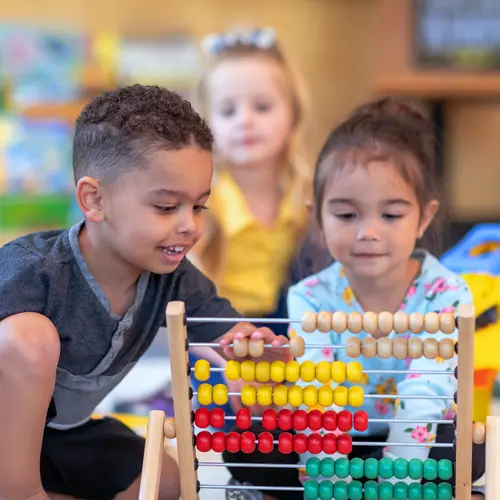Parents have so many options for their kids these days, from charter schools to specialized institutions for math and sciences to alternate education methods like Montessori parenting.
Montessori education is a self-paced, student-led form of education that prides itself on having a nurturing environment. Peers within a classroom vary in age. This is meant to encourage independence and accountability. Children learn and follow their curiosity at their own pace, allowing them to take the time they need to fully understand concepts and master individual goals.
Students in Montessori schools are given the freedom to ask questions and make connections. In addition to traditional school subjects, they learn the structure of rules, cooperation, and consequences. Students are also encouraged to be curious and follow their creative instincts.
Overall, the goal of Montessori parenting is to nurture critical thinking, collaboration, and leadership skills and help students grow up to be confident, passionate learners into adulthood.
Montessori Education History
Italy’s first female doctor, Dr. Maria Montessori, opened Casa dei Bambini at the beginning of the 20th century. Her goal was to provide education to low-income children in Rome. She chose not to employ traditional teaching methods and instead used her own child-focused education theories in the classroom. The school was unique because it focused on each child's developmental stage and learning pace.
Dr. Montessori had the kids choose what they wanted to learn and personalize their education to focus on their strengths. Teachers around the world began to take notice of her innovative educational practices and Montessori schools started to pop up over six continents.
By 1913, there were over 100 Montessori schools in the United States. Though popular, many opposed this new teaching style. Popular professors at Columbia University and educational reformers like William Heard Kilpatrick criticized individuality and the use of senses to help students learn. The Montessori method began to quickly lose popularity, and by 1920 there were almost no Montessori schools left in the U.S.
Forty years later, the Montessori method made something of a comeback. Dr. Nancy Rambusch, an educator from New York, went to London to train in the Montessori method. After returning home, she began teaching the method to small children's groups in New York City.
She was soon approached by other small parental groups interested in implementing Montessori parenting and education. In 1958, the first Whitby School, which follows a Montessori program, was opened outside of Greenwich, Connecticut, and its popularity has since continued to grow.
Montessori Education at Home
The Montessori principles are based on respect for your child. The first six years of a child's life is the most crucial to their development and it's when they absorb the most information. During these years, a child starts to understand the world around them and build their personality.
If you choose to incorporate Montessori principles into your home, it's important that you know your role as a Montessori parent and how your child can begin this way of learning. Montessori programs are based on each child's personal development based on their interests and needs. As a parent, you will support these principles while respecting the child's independence.
The first thing you'll do is observe what your child is actively doing and what they gravitate toward. Look at how they respond to a variety of activities, like looking at books or playing with building blocks. As the observant guide, take some activities away if they seem overwhelmed or add more if they seem bored.
Curiosity will naturally come when a child is in an environment that they can thrive in, with toys and materials that they find interesting. Have your kids also practice real-life skills, like household activities. Show them how it's done or let them help you. It may take several attempts before they can do it on their own, but allow them to go at their own comfortable pace.
Younger kids like toddlers adapt best with consistency and order. Your child may repeat a task until they feel confident that it is properly done. As they learn, be there to guide and assist, but try not to interfere with their work or force them to conform to specific instructions. Uninterrupted work is vital for building focus and independence.
Montessori Parenting Pros and Cons
Many educators are inspired by the Montessori techniques and have a passion for the methodology, which they are more than willing to pass on to parents.
Montessori parenting pros. If you are considering becoming a Montessori parent, there are numerous pros that come with this style of teaching:
- Parents learn to not constantly monitor and hang around their kids all the time.
- Kids who learn and play independently build confidence and entrepreneurial skills.
- Taking risks and experiencing consequences builds mental strength and character.
Montessori parenting cons. Of course, not every experience will be positive and the Montessori culture has some cons to keep in mind:
- The Montessori method teaches independence with work that is self-guided. But focusing so much on independence may make it hard for children to be good team players and obey authority figures.
- Depending on where you live, encouraging independent play and learning can be difficult (especially if you're in a big city).
- Understanding your child and their needs and wants is essential.
- Children who spend too much time at home may not always get enough exercise or time in nature.

